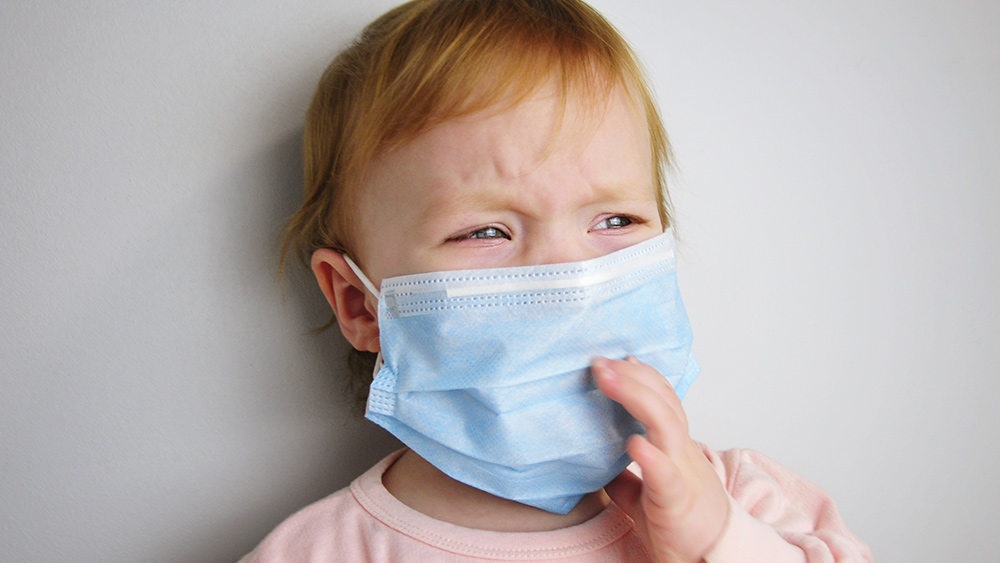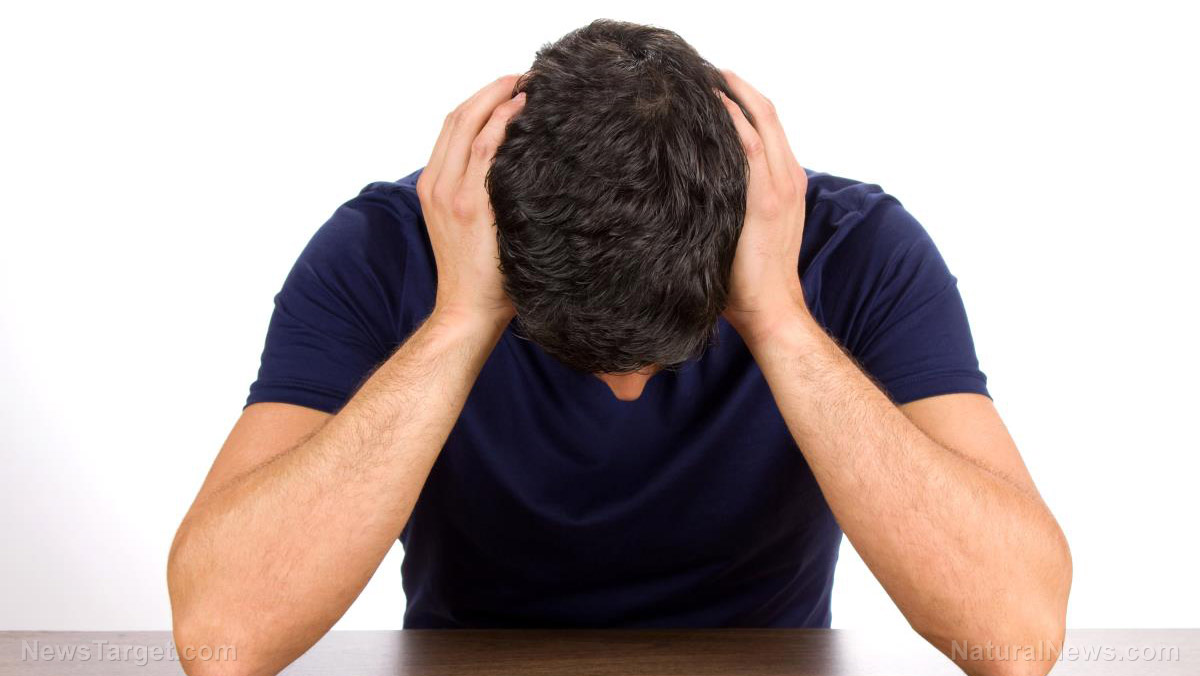It’s not a hallucination: Magic mushrooms grow in man’s blood after he injects himself with shroom tea
01/20/2021 / By Evangelyn Rodriguez

Despite preconceptions about psychedelic mushrooms, widely known as “magic mushrooms,” multiple researchers over the last decade have uncovered significant psychological benefits from their use, especially for people suffering from mental disorders. While the active compound in shrooms called psilocybin can cause hallucinations, it has also been proven to be a promising treatment for anxiety and depression. But as with all medications, it only produces positive effects when used correctly.
A case study published on Jan. 11 in the Journal of the Academy of Consultation-Liaison Psychiatry demonstrates the adverse effects of misusing magic mushrooms. Instead of drinking the shroom tea he brewed, a 30-year-old man decided to inject the concoction into his veins. He was rushed to the emergency room several days later because the mushroom began to grow in his blood. While this unusual case is the first and only one of its kind to be reported so far, it highlights the need for strict regulation of the use of substances like magic mushrooms, as well as public education about the dangers that come with misusing them.
The details of the case
According to the report written by researchers at Creighton University School of Medicine in Arizona, the unnamed man who injected himself with mushroom tea did so in a “desperate move to self-medicate.” The man – simply referred to as Mr. X – was suffering from bipolar disorder and depression and had a history of opioid dependency. (Related: Are “magic mushrooms” beneficial for mental health therapy?.)
Based on information gathered from his family, Mr. X had been researching ways to treat his opioid dependence and mental disorder prior to the incident. He then found scientific reports detailing the beneficial effects of hallucinogenic drugs, such as lysergic acid diethylamide (LSD) and psilocybin, and was inspired to use magic mushrooms to cure himself. At this point, Mr. X had stopped taking his prescriptions (risperidone and valproate) and had been cycling between depressive and manic states.
To prepare his chosen medication, Mr. X boiled Psilocybe cubensis, a species of magic mushrooms, and filtered the concoction through a cotton swab before injecting the liquid into his veins. Several days later, he began feeling lethargic, developed jaundice and nausea and started vomiting blood. His family found him in that state and rushed him to the hospital, where doctors found P. cubensis growing in his blood.
“Initial exam was remarkable for O2 [oxygen] saturation on room air of 92%, heart rate of 100, and blood pressure of 75/47,” wrote the researchers in their report. When Mr. X arrived at the ER, he was reported to have dry mucous membranes, mild cyanosis of the lips and nail beds and jaundiced skin. His abdomen was also tender to the touch and he was “grossly confused and unable to meaningfully participate in an interview.”
A series of lab tests also revealed that Mr. X suffered from problems like thrombocytopenia (low platelet count), hyponatremia (low sodium), hyperkalemia (higher-than-normal potassium levels), hypochloremia (low chloride), hypocalcemia (low calcium), acute kidney failure and acute liver injury. These eventually resulted in multiple-organ failure, which led to septic shock and acute respiratory failure and necessitated his transfer to the Intensive Care Unit (ICU).
Mr. X was hospitalized for a total of 22 days, eight of which he spent in the ICU. By the time the researchers submitted their report for peer-review, Mr. X was being subjected to a long-term treatment regimen involving two different antibiotics and an antifungal medication used to treat invasive fungal infections.
The potential benefits of magic mushrooms when used correctly
Despite the lack of approval from the Food and Drug Administration (FDA), psilocybin from magic mushrooms is touted as a “promising new treatment for psychiatric and behavioral disorders.” These claims are not without substantial evidence.
In 2015, American researchers reported that psilocybin, given orally to a small group of volunteers, significantly reduced heavy drinking as well as the participants’ dependence on alcohol. In another study conducted two years later, researchers at Johns Hopkins University School of Medicine reported similar benefits from psilocybin treatment, but this time in a small group of participants who are looking to stop smoking. The researchers said that their findings add to the growing evidence of psychedelics like psilocybin being effective treatments for addiction and substance use disorders.
In 2016, researchers at New York University Grossman School of Medicine found that a one-time, single-dose treatment of psilocybin from magic mushrooms significantly lessened the emotional distress of cancer patients. They noted that the psychological effects of the compound lasted for nearly five years, resulting in an increase in the patients’ quality of life.
The researchers reported the sustained effects of psilocybin treatment on anxiety and depression in a follow-up study published last year in the Journal of Psychopharmacology. According to them, up to 80 percent of the patients in their first study showed “clinically significant antidepressant and anti-anxiety responses” three to 4.5 years after receiving that single dose of psilocybin.
The researchers said that psilocybin from shrooms could become a useful tool for enhancing the effectiveness of psychotherapy and relieving the symptoms of mental disorders – provided, of course, that this promising medicine is used correctly.
Sources include:
Tagged Under: alternative medicine, Anxiety, beat depression, bipolar disorder, dangerous, drug misuse, fungal infections, magic mushrooms, mental health, natural medicine, psilocybin, psychedelic mushrooms
RECENT NEWS & ARTICLES
BrainFunction.News is a fact-based public education website published by Brain Function News Features, LLC.
All content copyright © 2018 by Brain Function News Features, LLC.
Contact Us with Tips or Corrections
All trademarks, registered trademarks and servicemarks mentioned on this site are the property of their respective owners.





















